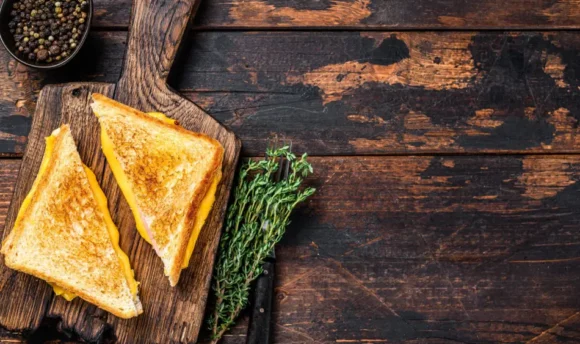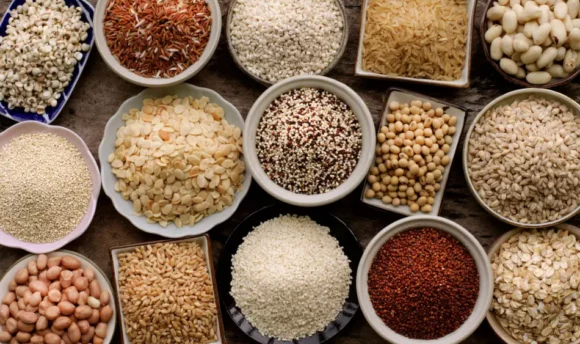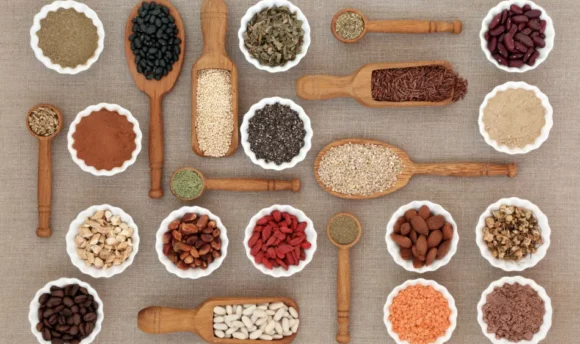Antioxidant Foods: Your Pathway to Radiant Health and Longevity
Fueling health with nature’s colorful palette
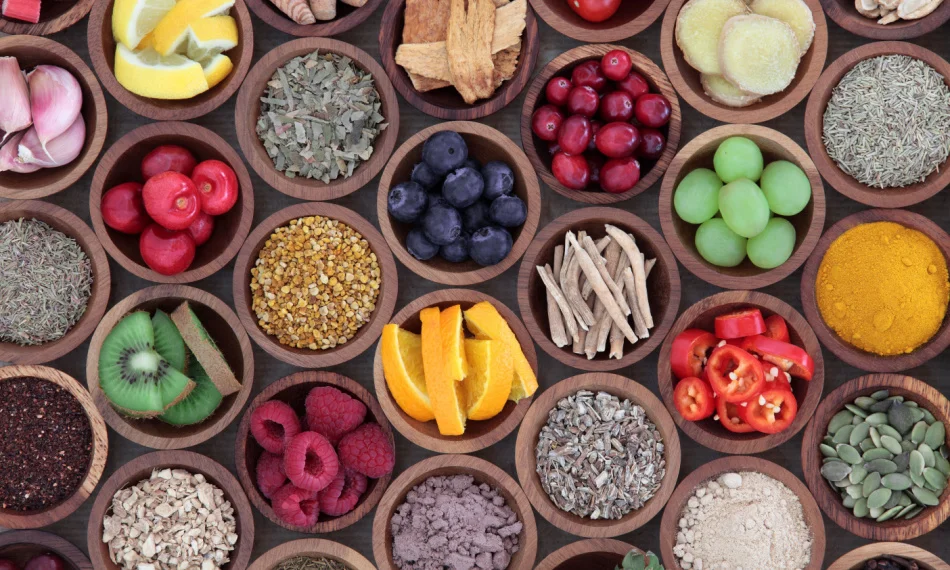
Discover the secrets to vibrant health with nature’s finest defenders: antioxidants!
These nutrients in our diet combat free radicals, which cause health issues like diabetes and cancer. Consume a rainbow of plant-based foods such as fruits, vegetables, nuts, and grains to boost your natural defenses.
Are you ready for a healthier, more radiant you? Learn how to incorporate antioxidant-rich foods into your meals as we explore the top antioxidant foods.
What Are Antioxidants?
Antioxidants are molecules that combat harmful free radicals, which damage cells and have been linked to a number of diseases, including cancer, diabetes, and heart disease.
Antioxidants neutralize these harmful molecules, preventing cell damage and improving our health. Various foods contain these compounds, which are vital for maintaining a balanced, healthy body.
Our bodies produce free radicals due to metabolism, but they can also come from external sources, such as pollution, UV exposure, and cigarettes. Oxidative stress is caused by free radical accumulation and results in cell damage, heart disease, and neurodegenerative disorders.
Types of external sources of antioxidants include vitamins C and E, beta-carotene, lycopene, lutein, selenium, manganese, and zeaxanthin. Other naturally occurring antioxidants include flavonoids, catechins, flavones, phytoestrogens, and polyphenols.
The body naturally generates certain antioxidants (glutathione, CoQ10, alpha lipoic acid, and others) that help maintain a balance by keeping free radicals under control.
Top Antioxidant Foods to Elevate Your Well-Being
Choosing the right foods for your health can make all the difference. You can protect your cells from free radical damage by eating foods rich in antioxidants. It can reduce the risk of heart disease, cancer, and other conditions.
Looking for a way to boost your health? Here are the top foods packed with antioxidants.
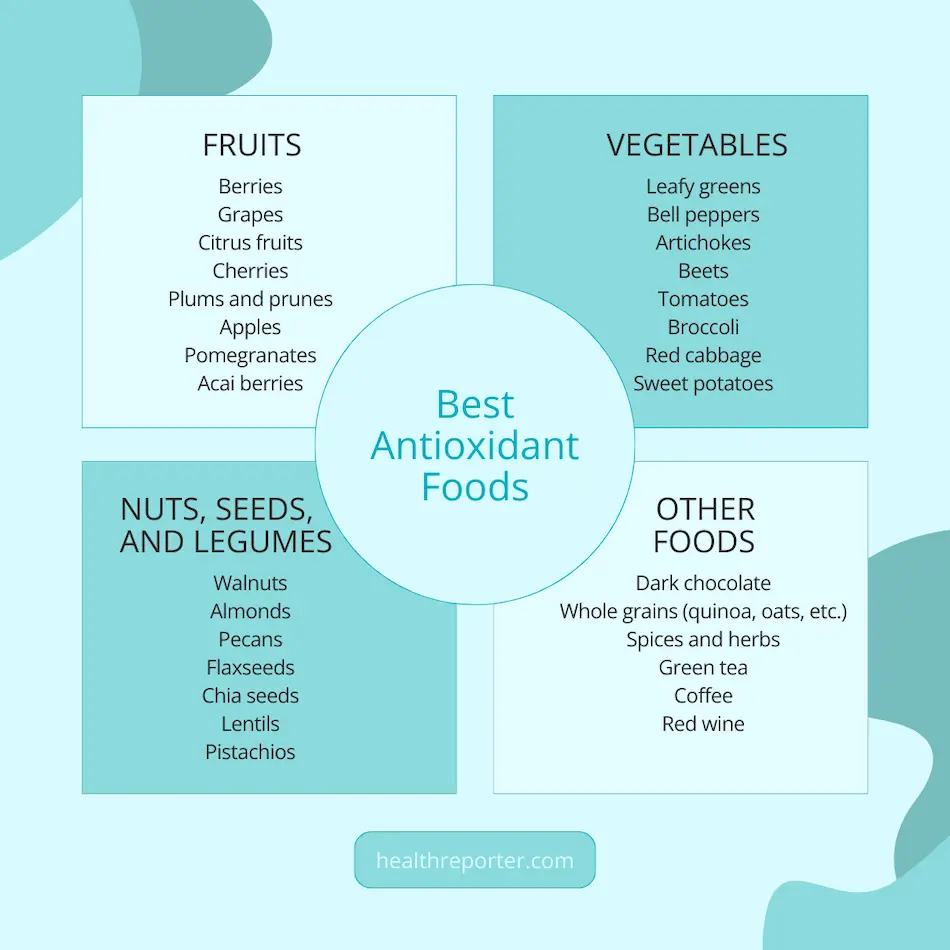
Fruits
Berries
Berries take first place as one of the top antioxidant-rich fruits on our list. And with good reason!
Blueberries, strawberries, raspberries, and blackberries are antioxidant powerhouses, packed with components like anthocyanins, quercetin, ellagic acid, and resveratrol, which protect against heart disease, cancer, Alzheimer’s disease, and other illnesses.
Blueberries and strawberries increase blood antioxidant levels and benefit mental health, brain function, and inflammation.
Berries are also the lowest-calorie fruits and good sources of vitamin C.
Grapes
Grapes are rich in many potent antioxidants; seeds and skin have the highest concentration. Red grapes, particularly the skin, are known for their antioxidants like resveratrol, which may protect against cancer, high blood sugar, and heart disease.
Certain grape varieties have anthocyanins, a class of flavonoids that give grapefruits red, orange, blue, purple, and pink colors. Anthocyanins may help treat heart and brain illnesses.
Grapes also contain other powerful antioxidants like lutein, beta-carotene, and ellagic acid.
Citrus fruits
Citrus fruits like oranges and lemons are known for their high vitamin C content. This essential vitamin is a powerful antioxidant important in boosting the immune system, promoting collagen production, and skin health.
Citrus fruits also contain several antioxidants, including flavonoids, carotenoids, and ascorbic acid, that may help neutralize free radicals, leading to cell protection and reducing oxidative stress in your body.
Cherries
Cherries, both sweet and sour varieties, are not only delectable but also rich sources of antioxidants and anti-inflammatory compounds. Cherries contain anthocyanins, which can help reduce inflammation and oxidative stress.
Cherries also contain polyphenols, carotenoids, melatonin, and vitamins C and E, which can provide many health benefits, including improved sleep, arthritic pain, and blood pressure.
Plums and prunes
Plums and prunes are not only naturally sweet but also carry potent antioxidants. Prunes, which are dried plums, contain anthocyanins, a specific polyphenol that can improve bone health, help reduce inflammation, and reduce the risk of developing heart disease and diabetes.
Plums are also rich in phytonutrients such as quercetin and beta-carotene, which fight oxidative stress. Oxidative stress often contributes to osteoporosis by making the bones porous and more prone to breaking.
Apples
The saying, “An apple a day keeps the doctor away,” isn’t just a saying. Apples, especially their peels, are powerful sources of antioxidants, including quercetin, which can help reduce inflammation risk, regulate your immune system, and protect your brain from damage caused by oxidative stress.
The apple fruit provides a range of phytochemicals, including catechin and chlorogenic acid, natural antioxidants in green tea and coffee. Catechin can help improve mitochondrial health, while chlorogenic acid may help lower blood sugar and promote weight loss.
Pomegranates
With their abundance of ruby-red seeds, pomegranates are loaded with antioxidants. Specifically, pomegranates are packed with polyphenols, including punicalagin, hydrolyzable tannins, and anthocyanins.
Anthocyanins are associated with several potential health benefits, including reduced blood pressure and cancer growth. Anthocyanins are what contribute to pomegranates’ stunning ruby color.
Pomegranate juice has a higher antioxidant content than seeds. According to studies, the juice may have three times more antioxidants than red wine and green tea.
Acai berries
Acai berries offer a unique and delicious way to increase your antioxidant intake. They are especially rich in anthocyanins, responsible for the berries’ beautiful dark purple color. This can help to prevent lifestyle-related diseases like cancer, cardiovascular, diabetes, and neurological diseases.
Studies reveal that acai extract has higher antioxidant properties than vitamins C and E, and supplementing with acaí products may enhance the body’s defense against free radical damage.
Acai berries are also believed to have a higher antioxidant content than cranberries, raspberries, blackberries, strawberries, or blueberries.
Kiwi
Besides oranges and lemons, kiwi is also a high source of vitamin C. The nutritional breakdown of kiwi fruit shows that it contains 154% of vitamin C per 100 grams.
Vitamin C is a powerful antioxidant that can boost your body’s defenses against dangerous infections.
Kiwis also contain phenols and carotenoids, which may help reduce the risk of age-related diseases.


“I often come across the misconception that all antioxidants are the same or that taking supplements is more effective than getting antioxidants from food.
It’s crucial to emphasize the diversity of antioxidants found in various foods and how they work synergistically. I advise my clients that a balanced diet with various antioxidant-rich foods provides a spectrum of these compounds, which may be more beneficial than relying on isolated supplements.”
Vegetables
Leafy greens
Leafy green vegetables such as kale, cabbage sprouts, spinach, Swiss chard, and dandelion greens are packed with antioxidants, including vitamins C and E, polyphenols, flavonoids, lutein, carotenoids, quercetin, and beta-carotene.
These substances may have several health benefits, including a lower risk of health conditions such as diabetes, high blood pressure, stroke, anemia, and some types of cancer. They may also improve immunity, the heart, bones, skin, and gut health.
Bell peppers
Bell peppers are rich in various antioxidants — especially carotenoids, which are abundant in ripe specimens.
The red bell peppers are rich in capsanthin, a powerful antioxidant responsible for their beautiful red color. Capsanthin helps protect the skin against UVA and UVB damage. Yellow bell peppers contain violaxanthin, which may help prevent oxidative damage and reduce inflammation.
Bell peppers also have lutein, quercetin, and luteolin, powerful antioxidants that can promote eye health, help prevent certain chronic conditions like cancer and heart disease, and reduce blood pressure.
Artichokes
Artichokes are among the most antioxidant-rich vegetables. Packed with polyphenols like chlorogenic acid, these pinecone-shaped vegetables may help improve the body’s metabolism of blood lipids and glucose.
Besides being a rich source of the antioxidant vitamin C, artichokes are also known for two essential antioxidants: cynarine and silymarin. Cynarin may provide several health benefits, including lower cholesterol, supporting liver health, and reducing the risk of atherosclerosis. Silymarin may help promote liver health.
Studies have shown that artichokes are high in antioxidants, especially when cooked. Boiled artichokes increase their antioxidant content by 8 times, while steamed artichokes raise it by 15 times.


“One lesser-known antioxidant-rich food is the humble artichoke. It’s packed with antioxidants, including quercetin, rutin, anthocyanins, cynarin, luteolin, and silymarin.
Another surprisingly antioxidant-rich food is pecans, which contain more antioxidants than any other nut. They are rich in vitamin E, ellagic acid, and other antioxidants that help combat inflammation and promote heart health.”
Beets
Beets are vegetables rich in antioxidants that belong to a group of pigments called betalains. These are responsible for beets’ reddish color and are associated with certain health benefits, including preventing colon cancer and digestive issues.
Betalains have also been shown to reduce osteoarthritis pain and inflammation. Beets are also good for people with diabetes as they may help increase blood flow circulation.
Tomatoes
Tomatoes are abundant in the antioxidant lycopene. This pigment that gives tomatoes their color has been linked to various health benefits, including lower blood pressure, reduced arterial hardening and inflammation, and improved heart health.
Tomatoes high in antioxidants have been linked to many other health benefits, including improved immune system, skin health, exercise recovery, and brain health. They have also been found to lower the risk of digestive problems and cancer.
Broccoli
Like other dark leafy veggies, broccoli is a superfood. It contains significant concentrations of glucoraphanin, a substance that, during digestion, is converted into sulforaphane, a powerful antioxidant.
Sulforaphane may provide several health benefits, including decreased blood sugar, cholesterol, oxidative stress, and the development of chronic diseases. While these benefits were seen in animals, more research is needed to understand its role in humans.
Broccoli also has good amounts of the antioxidants lutein and zeaxanthin, which may help prevent oxidative stress and cell damage in your eyes.
Broccoli can also be good for weight loss as it has few calories and high dietary fiber that keeps you full for longer.
Red cabbage
Also known as purple cabbage, red cabbage boasts an incredible composition of nutrients, including vitamins C, K, and A, and is rich in antioxidant content.
Red cabbage is packed with anthocyanins, antioxidants that give it its color. Anthocyanins have many health benefits, including reduced cancer risk, inflammation, and heart disease.
Sweet potatoes
Sweet potatoes contain antioxidants, including beta-carotene, chlorogenic acid, and anthocyanins. They are also packed with vitamins A, C and E.
The antioxidants in sweet potatoes have been linked to several health advantages, including a lower risk of diabetes, cancer, heart disease, depression, age-related vision loss, obesity, Alzheimer’s, and Parkinson’s.
Interestingly, sweet potatoes’ antioxidant levels increase with the intensity of the flesh’s color. Deep-colored varieties, like purple, deep orange, and red, have the highest content.
Sweet potatoes are also among the best foods high in iron as they offer sufficient iron even after peeling.
Nuts, seeds, and legumes
Walnuts
With a distinct resemblance to the human brain, walnuts are a nutritional powerhouse. They contain high polyphenols and vitamin E, enhancing their antioxidant properties.
These may help prevent oxidative stress, reduce inflammation, promote weight control, and prevent some cancers.
Walnuts are also packed with omega-3 fatty acids, which makes them the best heart-healthy foods, contributing to cardiovascular health and reduced inflammation.
Almonds
Almonds are among the best food sources of vitamin E. 1 oz provides 48% of the DV. Vitamin E may help enlarge blood vessels to increase blood flow, boost immunity, lower inflammation, and protect against neurological diseases like Alzheimer’s.
Regular almond consumption has been linked to a lower risk of several illnesses, such as metabolic syndrome, diabetes, hypertension, and obesity.
Pecans
Pecans are also a rich source of antioxidant vitamin E, which is potentially good in lowering LDL cholesterol levels and promoting heart health. They are also excellent sources of monounsaturated fats and fiber, adding them to the healthiest nuts you can consume.
Flaxseeds
Flaxseeds may be tiny, but they contain nutrients and numerous health benefits. They’re rich in lignans, plant compounds with antioxidant properties, studied for their powerful cancer-fighting effects. Flaxseeds have 75-800 times more lignans than other plant-based foods.
Flaxseed is also an excellent source of alpha-linolenic acid (ALA), an omega-3 fatty acid that promotes heart health and may have anti-inflammatory effects. It’s also rich in dietary fiber, which can improve digestive health and help regulate cholesterol levels.
Chia seeds
Despite their small size, chia seeds are nutrient-dense. They contain potent antioxidants, including chlorogenic acid, caffeic acid, kaempferol, myricetin, and quercetin. These may offer anticancer properties and protect the liver and heart.
Chia seeds are also a great source of omega-3 fatty acids, especially alpha-linolenic acid (ALA), promoting heart health. They are also rich in dietary fiber, which may promote digestion and a feeling of fullness.
Lentils
Lentils are not only affordable and versatile but also a nutritional powerhouse. They are rich in antioxidants, including phenols that prevent cell oxidation and have antiviral, antibacterial, and anti-inflammatory properties.
Lentils also have polyphenols such as flavonols and procyanidin, which may have strong neuroprotective and anti-inflammatory effects.
Lentils contain vitamin C, which is important for collagen synthesis. Collagen can improve skin elasticity and tone and strengthen hair and nails.
Pistachios
Pistachio nuts are flavorful, enjoyable to eat, and highly nutritious. These nuts have more antioxidants than many other nuts and seeds.
Pistachios contain polyphenols and tocophenols, two antioxidants that may help protect against heart disease and cancer.
These nuts are also good sources of lutein and zeaxanthin, essential antioxidants for eye health.
Beverages
Green tea
Green tea is rich in a type of polyphenol antioxidant, including catechin called epigallocatechin-3-gallate (EGCG), which may help enhance various medical problems or disease indicators.
Coffee
Coffee, known for improving focus and increasing energy, is a morning ritual and a source of several health benefits. Packed with antioxidants, coffee contains compounds like chlorogenic acid that can help reduce inflammation. It may also help prevent chronic illnesses, including obesity.
Red wine
When consumed in moderation, red wine can offer several health benefits. Red wine is produced by the crushing and fermenting of dark-colored grapes. And as discussed above, grapes are rich in several antioxidants, including resveratrol, epicatechin, catechin, and proanthocyanins.
Resveratrol has several health benefits, including reducing the risk of cancer and heart disease and fighting inflammation and blood clotting.
Other foods
Dark chocolate
Dark chocolate contains powerful antioxidants, including flavonoids, polyphenols, and catechins. Research suggests that the polyphenols in dark chocolate may help reduce some types of LDL cholesterol when consumed with other foods like cocoa and almonds.
Whole grains
Whole grains like quinoa, oats, and barley contain several compounds that act as antioxidants, including phytic acid, ferulic acid, lignans, and sulfur compounds. These may help reduce chronic inflammation related to diabetes and heart disease.
Whole grains are also great weight loss foods for those on a weight journey. Their high soluble fiber content makes it easy to absorb water, slowing digestion and increasing feelings of fullness.
Spices and herbs
Spices and herbs like oregano, peppermint, sage, lemon balm, cinnamon, and clove contain the highest antioxidants that may help boost the immune system and increase oxygenation and circulation.
Health Benefits of Antioxidant-Rich Foods
Here are the benefits of consuming your daily serving of antioxidants:
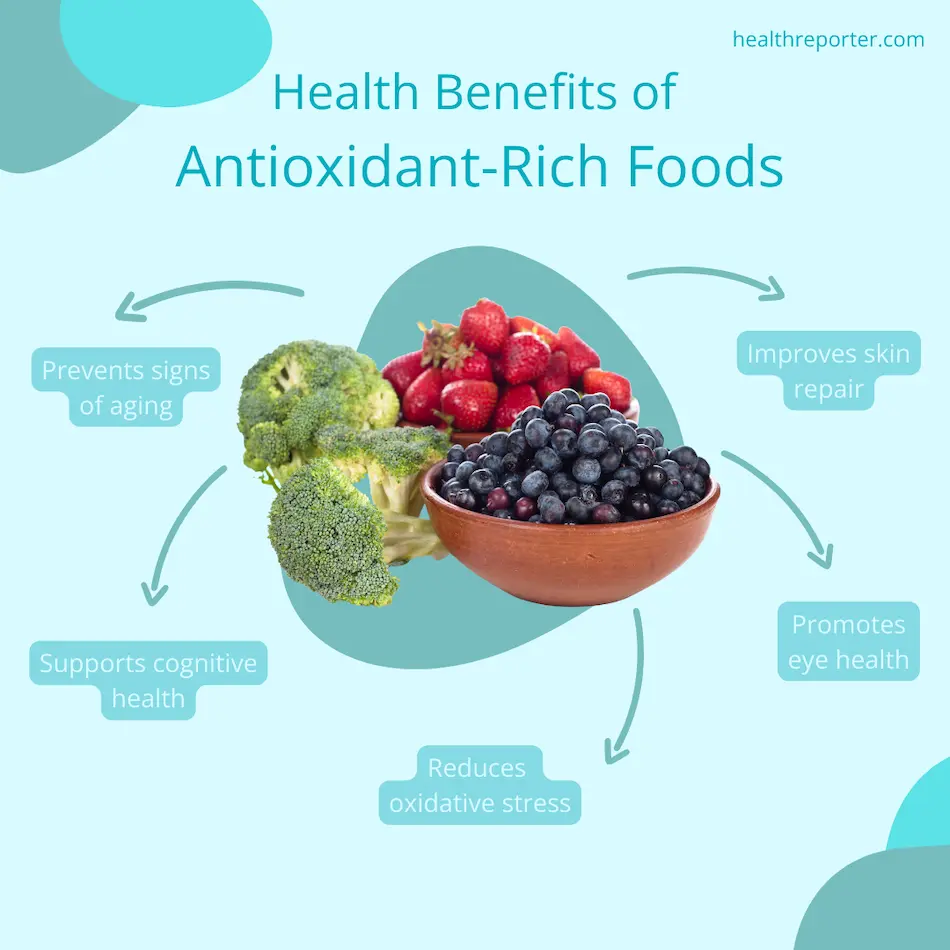
#1 They reduce oxidative stress
Antioxidant-rich foods play an essential role in protecting cells from oxidative stress, which is linked to many chronic diseases, including diabetes, cancer, metabolic disorders, age-related macular degeneration, cardiovascular diseases, depression, mental stress, and memory loss.
#2 They improve brain function
The brain is more susceptible to free radical damage than any other body part. This is because of the amount of oxygen it uses in daily functioning. Consuming antioxidant-rich foods may help prevent this attack.
#3 They support cognitive health
Antioxidants may delay memory loss and other types of cognitive decline. All of this is also linked to oxidative stress, which can cause memory loss, cognitive decline, and Alzheimer’s disease.
#4 They promote healthy aging
While nothing can scientifically stop or delay aging, studies suggest that antioxidants may promote a healthy aging process. Eating antioxidant-rich foods can help keep the body healthy and active as you age, helping with everything from mental functions like delaying memory loss to general disease prevention.
#5 They support healthy skin
Antioxidants also play an important role in keeping the skin healthy. By fighting the free radicals, antioxidants may provide additional skin protection.
Besides preventing inflammation, which can help avoid things like redness, puffiness, and premature aging, antioxidants may protect against UV sun damage, which causes premature aging and wrinkles.
#6 They promote eye health
Increasing antioxidant-rich foods can also reduce your risk of developing cataracts and age-related macular degeneration.
Lutein and zeaxanthin are antioxidants that reduce the risk of chronic eye diseases. People who consume more of these antioxidants are less likely to develop cataracts. Combining vitamin C with other essential nutrients can slow the progression of age-related macular degeneration and vision loss. In the eyes, vitamin E protects cells from free radicals, which cause tissue damage.
Incorporating Antioxidant Foods into Your Diet
- For a healthy breakfast, berries are antioxidant superstars. Add a handful of blueberries, strawberries, or raspberries to your morning yogurt, oatmeal, or smoothie. Mix different berries for a tasty and nutrient-packed breakfast. You can also top your cereal with fresh berries for more nutrition.
- Snack on antioxidant-rich foods like red grapes and raisins, or sprinkle walnuts, flaxseeds, chia seeds, dark chocolate, and almonds on salads and yogurt.
- Make salads for your lunch and dinner meals to increase your daily consumption of vegetables. Use a mix of colorful vegetables, leafy greens, and various toppings. Add tomatoes, bell peppers, carrots, and dark leafy greens to create a visually appealing and antioxidant-rich salad.
- Instead of soda, enjoy a cup of an antioxidant-rich beverage like coffee or tea or indulge in a glass of wine.
- Cook your vegetables slightly to preserve their nutritional value. Steam them instead of boiling them, and stop your cooking when the vegetables still have some texture and color.
A Word From Our RD


Antioxidants benefit your body, but taking antioxidant supplements to get them might not be the best option.
When used in excess, several antioxidant supplements can harm your health and interact negatively with certain medications. For example, using high doses of vitamin A supplements during pregnancy may increase the risk of cancer and cardiovascular disease, as well as cause congenital disabilities.
High doses of vitamin E supplements have been associated with an increased risk of prostate cancer.
Getting these compounds from food rather than antioxidant supplements is much safer and healthier. All foods have unique antioxidants in varying quantities, so it’s essential to incorporate a diverse range of foods into your diet.
FAQ
The four major antioxidants are vitamin C, vitamin E, beta-carotene, and selenium. While some foods contain higher antioxidant content than others, colorful fruits and vegetables, especially those with purple, red, blue, yellow, and orange colors, have the highest amount.
The 2 most important antioxidants are vitamins C and E. The C vitamin helps boost the immune system and promotes collagen synthesis for skin health. Vitamin E helps maintain the integrity of red blood cells and has been associated with cardiovascular benefits.
Antioxidants are healthy and play an essential role in promoting overall well-being. They may help reduce the risk of chronic diseases, including heart disease, diabetes, inflammation, and certain cancers.
The Final Verdict on Antioxidants and Your Wellbeing
Antioxidants are powerful protecting substances found in many foods. Antioxidants can significantly enhance your health if you want to protect your cells from damaging free radicals, reduce chronic inflammation, or help manage a medical condition.
Consuming a diet rich in nutritious foods ensures you get abundant antioxidants. Incorporate a variety of colorful fruits, vegetables, seafood, herbs, teas, nuts, and legumes so you can get all the antioxidants you require.

















































 Select your language:
Select your language: 






